
Whether your role becomes teaching high school classes or investigating how to conquer an infectious disease, the field of public health provides broad opportunities to improve a community's quality of life on a local, national, or global scale. Professionals in the field range from community activist to epidemiologist, from nutrition consultant to informatics specialist. The thrust of public health – to promote healthy lifestyles and prevent injury and disease – contrasts with the medical model, which targets diagnosing and treating disease and illness after they occur. One of the first steps toward a career in the field is a Bachelor's in Public Health.
The degree gives you the tools and knowledge needed to build and maintain healthy societies. This list offers the 35 best universities and colleges where an undergraduate degree in Public Health can be earned. Some of the institutions on this list offer separate Bachelor of Science and Bachelor of Arts degrees in the discipline. The former aims at research- and clinical-based occupations in the field, such as epidemiology. The latter points to careers in education or developing programs that promote healthy lifestyles, which drives home concepts such as social justice, cultural forces, and civic responsibility.
A Bachelor's in Public Health usually requires four to five years to complete. Most of the programs listed here require a capstone project or internship in the student's senior year, which allows the student to demonstrate his or her knowledge in a real-world setting. A Public Health bachelor's degree also can be used as the first step toward graduate work. Many students go on to advanced programs in fields such as medicine, nursing, dentistry, kinesiology, and social work. Several of the universities on this list offer an accelerated program in which a Public Health undergraduate who is adept at handling big courseloads can get a headstart on a Master in Public Health degree, sometimes allowing the student to complete the graduate degree in just one additional year.
Why Become a Public Health Professional?
As the average age of U.S. residents rises the demand for healthcare expertise will continue to increase. According to the Association of Schools of Public Health, the number of public health professionals for every 100,000 U.S. residents dropped from 220 in 1980 to 158 in 2000. Job opportunities in the public health field are deep and wide, but there is a common thread running through them: the rewarding ability to touch people's lives in a positive way. Whether the task is analyzing data, running a health department, or teaching a room full of students, public health professionals take a proactive approach to improve the world around them. They can do research to help remove community health hazards, work to develop plans and policies that address health concerns, and educate and empower the public with the goal of slowing the spread of infectious diseases.
Public health professionals can work in the government, academic or private sectors. They can study and develop action plans for such hot-button issues as global warming, air quality, greenhouse gases, and acid rain. According to the U.S. Bureau of Labor Statistics, the median wage for health educators and community health workers in 2017 was $46,080. Also, the projected rate of job growth in the field through 2026 was much faster than average. Epidemiology, a more focused public health profession, has a median wage of $69,660. Other high-paying jobs in the public health field include biostatistician at $81,950, a health and safety engineer at 86,720, and an environmental scientist at $68,910.
How to Choose a Bachelor's in Public Health
Social Work Degree Guide is here to help you find the perfect program for you. We factor in Student Satisfaction and Affordability as our primary metrics, at 30 percent of the total ranking each. From there Alumni Salaries, SAT Scores, and the school's retention rate each represent 10 percent. For more information on how SWG ranks Social Work degrees, please visit our About Us page.
#35. Ohio Northern University – Ada, OH
Bachelor of Science in Public Health
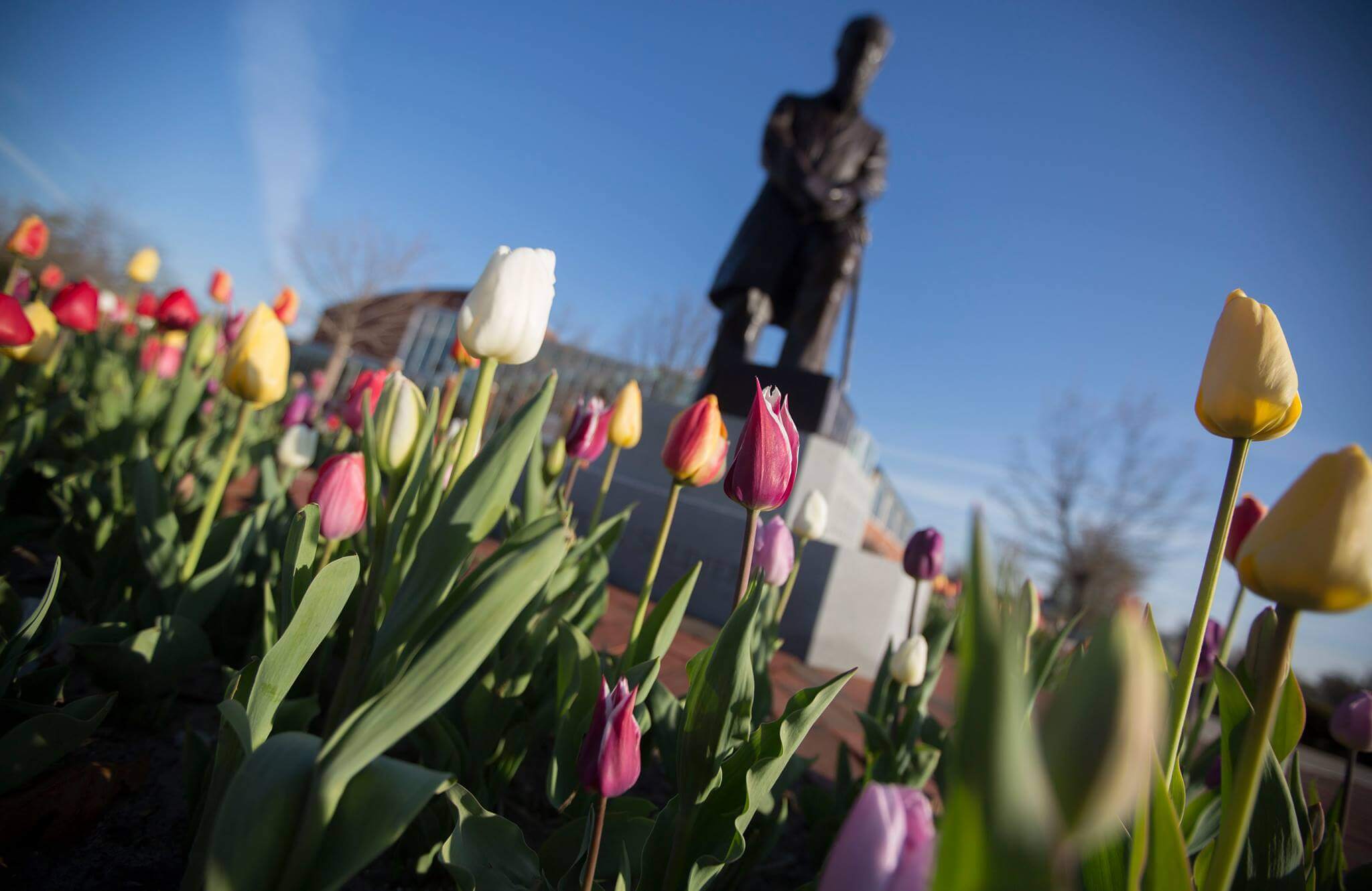
More Information
Tuition: $30,990
Score: 76.3
Unique Features
Expect small class sizes and individual attention from faculty at Ohio Northern University, which has a student body of just over 3,000. The campus is located in Ada, a town of just over 5,000 located about 80 miles from Columbia, Ohio's state capital. U.S. News & World Report ranks Ohio Northern at No. 3 among Midwest schools that provide the best education value. The university's Bachelor of Science in Public Health degree program has 55 semester credit hours, which fall within the 120 credit hours Ohio Northern requires for an undergraduate degree. There are six Public Health core courses, comprising 18 credit hours, that include classes such as Introduction to Public Health, Health Education Planning, and Health Informatics. The degree requires at least four years to complete. In their final year, students complete a capstone project, an off-campus, real-world effort that reflects their accumulated knowledge of public health. Ohio Northern accepts applications on a rolling schedule, but to have the best shot at scholarships, prospective students should apply by the first of December.
#34. University at Buffalo – Buffalo, NY
Bachelor of Science in Public Health

More Information
Tuition: $9,828 / $27,068
Score: 76.6
Unique Features
The University at Buffalo, part of the State University of New York system, has an enrollment of about 30,600 and is located in one of the largest cities in eastern New York state. U.S News & World Report ranks UB No. 89 among the nation's universities. The Bachelor of Science in Public Health degree is offered by the university's School of Public Health and Health Professionals. The degree requires 41 semester credit hours of coursework in Public Health curriculum, plus 19 credit hours in other areas, such as chemistry, physiology, statistics, and political science. Public Health classes include Stress and Population Health; Public Health Systems and Policies, and Pathogens; Prevention; and Controversy. Coursework includes a capstone project in the student's final year that displays expertise developed in his or her Public Health studies. UB students can use the bachelor's degree as a jumping-off point to pursue a master's degree in epidemiology or in community health and health behavior. High school students who apply to UB need to provide transcripts and SAT or ACT scores. Undergraduate transfers must provide transcripts. There are, however, special guidelines for transfers from other SUNY campuses. Existing UB students who want to enter the BS in Public Health program need a GPA of at least 2.0 in completed coursework, plus a 2.5 minimum GPA in two Public Health introductory courses.
#33. The College of New Jersey – Ewing Township, NJ
Public Health Major

More Information
Tuition: $16,149 / $27,578
Score: 78.3
Unique Features
The College of New Jersey is located in a suburb of Trenton, NJ, and has an enrollment of almost 7,000 students. U.S. News & World Report ranks the college, also known as TCNJ, at No. 4 among universities in North U.S. and No. 1 in the region for students who are veterans. TCNJ offers 50 undergraduate programs in seven schools. The Public Health major, offered through the college's School of Nursing, Health, and Exercise Science, is a bachelor's degree that emphasizes global health. There are 14 required classes in five areas: orientation, core courses, support courses, electives, and a capstone. Core courses include Population Approaches to World Health and Introduction to Epidemiology. Electives consist of classes such as International Communications, New Media and Health Culture, and Biomedical Ethics. The capstone is an internship that requires 120 hours of work with a public health agency approved by the capstone coordinator or department chairperson. The capstone internship is conducted in the final year of what is usually a four-year journey in completing the degree. High schoolers considering applying to TCNJ should note that students admitted recently to the college ranked in the top 15 percent of their class and had SAT scores that averaged at least 1,265 in the math and reading section, or an ACT score of at least 28.
#32. University of Minnesota Duluth – Duluth, MN
Public Health Bachelor of Applied Science

More Information
Tuition: $13,344 / $18,462
Score: 78.6
Unique Features
The University of Minnesota Duluth is a campus of over 10,000 students located near the shore of Lake Superior in the port city of Duluth, MN. It is part of the University of Minnesota system, which has campuses in four other cities, including Minneapolis. UM Duluth is tied for No. 45 on U.S. News & World Report's ranking of Mideast universities. UM Duluth offers 84 undergraduate or graduate programs in 26 fields. UM Duluth's Public Health Bachelor of Applied Science degree is offered by the university's School of Education and Human Service Professions. UM Duluth is recognized as one of the nation's best Public Health programs for students who pursue a career as a Health Education teacher. Public Health students are eligible to apply for three scholarships specific to their major. The Public Health degree requires 120 credit hours, of which 102-115 must be in or related to the major. UC Duluth students must complete 45 credit hours before they can apply to the program. A minimum GPA of 2.5 is generally required to be considered for acceptance into the program or to transfer from another college or university. Required or elective courses include First Responder, Facilitating Healthy Lifestyle Change, and Women's Health Issues.
#31. New York University – New York, NY
Global Public Health/Nursing

More Information
Tuition: $50,464
Score: 78.9
Unique Features
New York University, a campus with more than 26,400 undergraduates, is located in the trendy Greenwich Village community of New York City. NYU's public health bachelor's degree program is unique in that it combines the discipline of nursing. The Global Public Health/Nursing program is offered through NYU's Rory Meyers School of Nursing. Students who pursue the degree will take the same coursework and put in the same clinical hours as the university's nursing majors. Students can get a degree in about four years if they take a traditional path. Program graduates can pursue careers in clinical healthcare, government, community, research, or education settings. There are 128 credits required for graduation, which include 44 units in liberal arts, 20 that cover science prerequisites, and 64 that pull from the nursing core and clinical coursework. Nursing courses don't begin until a student's junior year, which allows the opportunity to take advantage of NYU's broad liberal arts offerings, and to study abroad as a sophomore. Students with a bachelor's degree already in hand can apply for an accelerated, 15-month program to be completed in four consecutive semesters of full-time study. Applicants for the accelerated track must have completed several nursing-related prerequisite courses.
#30. Temple University – Philadelphia, PA
Bachelor of Science in Public Health
More Information
Tuition: $16,658 / $28,418
Score: 79.3
Unique Features
Temple University is a 384-acre urban campus located in the heart of Philadelphia. There are about 29,500 undergraduate students at Temple, which is tied for No. 106 on U.S. News and World Report's list of top universities. The university's Bachelor of Science in Public Health degree is offered through the College of Public Health's Department of Social and Behavioral Sciences. There are 91 required credit hours specifically for the Public Health degree, out of 120 hours needed for graduation. All Public Health students must take a course called Public Health: The Way We Live, Work, and Play. Other required courses include Human Sexuality; Nutrition and Health; and Society, Drug, and Alcohol Perspectives. All major coursework must be completed with a GPA of at least 2.0. Students in the program get a taste of professional experience with internships provided by businesses and organizations throughout Philadelphia. The internship takes place in the student's final academic year; the degree program generally requires four years to complete. Graduates of the bachelor's program who meet certain criteria can enter an accelerated track in which they can earn a Master of Public Health in one year.
#29. University of California-San Diego, La Jolla, CA
Bachelor of Science in Public Health

More Information
Tuition: $14,018 / $42,032
Score: 80.5
Unique Features
The University of California-San Diego is located in the oceanside city of La Jolla, in the northern reaches of the San Diego metropolitan area. There are about 28,500 undergraduate students studying in six undergraduate colleges. The Bachelor of Science in Public Health is the first undergraduate degree offered by UCSD's School of Medicine, which is ranked No. 12 for medical research by U.S. News & World Report. The School of Medicine combines the strengths of a major research institution and the rich cultural environment of coastal Southern California. UCSD, which operates on a quarter system, does not accept transfer students from other medical schools. The Public Health degree's coursework is based on five areas of emphasis in public health: epidemiology; biostatistics, environmental and occupational health; social and behavioral aspects of health; and health policy and management. There are ten required core courses for the Public Health degree. Students must complete Introduction to Public Health with a grade of B or higher before declaring a Public Health major. The degree's coursework covers 21 courses and 87 or 88 units. Core discipline courses include The U.S. Health System and Health Policies for Healthy Lifestyles.
#28. Western Illinois University – Macomb, IL
Bachelor of Science in Public Health

More Information
Tuition: $12,897
Score: 80.8
Unique Features
Western Illinois University's Macomb campus is located in southwest Illinois, about 75 miles west of Peoria. Macomb's population of about 20,000 dovetails well with Western Illinois undergraduate enrollment of more than 7,500. The small campus increases the likelihood of small class sizes and easier access to faculty and other campus staff. The university's Bachelor of Science in Public Health program offers opportunities for studying abroad and doing internships inside and outside the U.S. Recent graduates of the program work at the Centers for Disease Control, the Connecticut Department of Public Health, and numerous county health departments in Illinois. The Public Health degree calls for 86 credits out the 120 hours required for a baccalaureate degree. In addition to 32 credit hours of Public Health core courses, the degree requires 15 credit hours in one of three areas of emphasis: Community Education, Public Health Preparedness, or Environmental and Occupational Safety. Other areas of study include Women's Health and Multicultural Health. A GPA of at least 2.0 is required for all Public Health degree coursework. All students seeking a BS in Public Health must complete a capstone internship in their final semester.
#27. University of Colorado – Denver, CO
BA/BS Public Health

More Information
Tuition: $9,107 / $25,259
Score: 81.9
Unique Features
The University of Colorado's 126-acre campus in downtown Denver is located just a few blocks from the Coors Field ballpark. More than 15,500 undergraduates are enrolled at UC Denver. The BA/BS Public Health degree programs are offered through the Colorado School of Public Health and the College of Liberal Arts and Sciences. Students in the BA track place a professional emphasis on social sciences and public health. The BA in Public Health has 43 semester credit hours of required courses, all of which must be completed with a 2.0 GPA or better. The BS in Public Health option focuses on the natural sciences and public health. There are 73 required credit hours and a 2.0 GPA in these courses is also required to fulfill the major. Classes in both the Bachelor of Arts and Bachelor of Science program include Social Determinants of Health, Quantitative Methods in Anthropology, and Applied Statistics. Both programs require a capstone project in the final year of coursework. The capstone allows the student to demonstrate that they can apply knowledge gained in coursework to real-world situations. UC Denver also offers an accelerated program in which a graduate of the BA or BS Public Health program can earn a Master of Public Health degree in one additional year.
#26. University of Nebraska – Omaha, NE
Public Health, Bachelor of Science

More Information
Tuition: $7,630 / $20,320
Score: 82.2
Unique Features
The University of Nebraska's Omaha campus is nestled between the city's downtown and its historic district. There are about 12,600 undergraduate students enrolled at UNO. The Public Health, Bachelor of Science degree is offered through the university's Department of Health and Kinesiology. Students who apply to the major must have a cumulative GPA of least 2.5. To graduate, students in the program must average a 2.5 GPA in all required courses and earn a C grade or better in each class. The Public Health BS degree has 78 credit hours, out of the 120 credit hours needed for a baccalaureate degree. Classes include Social Marketing for Public Health, Motivation for Physical Activity, and Health Aspects of Aging. There also is an internship program that provides real-world training and covers six credit hours. UNO offers an integrated program in which Public Health BS majors, with a total of 144 credit hours, can earn a Master of Arts or Master of Science degree in Health, Physical Education, and Recreation with a Health Behavior concentration. The program is for students who can handle the rigors of graduate-level work while pursuing an undergraduate degree.
#25. University of South Carolina – Columbia, SC
Public Health – BA/BS

More Information
Tuition: $11,862 / $31,962
Score: 82.2
Unique Features
The University of South Carolina's Columbia campus has an undergraduate enrollment of about 23,600 and serves as the flagship campus of the University of South Carolina system. South Carolina is tied for No. 106 on U.S. News & World Report's ranking of universities. The band Hootie and the Blowfish formed when members were South Carolina students. Twin Public Health degrees, one a Bachelor of Arts and the other a Bachelor of Science, is offered through South Carolina's Arnold School of Public Health. The BA degree focuses more on social and behavioral sciences and can lead to graduate programs such as law school. BA students can choose cognate classes that align with their interests. The BA degree requirements include between 82-94 credit hours of coursework; 120 credit hours are needed for a baccalaureate degree. The BS degree provides a broad curriculum in the natural sciences, aiming for continuing study or careers in public health sciences, medicine, and similar clinical environments. Targeted coursework includes Organic Chemistry, Physiology, and Anatomy. Between 86-95 credit hours in the major are required. All students pick up real-world experience in public health through a field project or independent research.
#24. Brigham Young University-Idaho – Rexburg, ID
BS in Public Health

More Information
Tuition: $4,018
Score: 82.3
Unique Features
Brigham Young University-Idaho is located in the county-seat community of Rexburg, ID. It is 30 minutes from Idaho Falls and a three-hour drive from Yellowstone National Park. BYU-Idaho's total enrollment of more than 19,000 approaches Rexburg's population of about 25,500. The university is tied for No. 13 on the U.S. News & World Report's ranking of colleges in the West. BYU-Idaho's BS in Public Health degree is a four-year program with 55 to 58 required semester credit hours devoted to the degree. At least 120 total credit hours are needed to acquire a bachelor's degree. Core coursework for the Public Health degree includes Epidemiology, Biostatistics, and an internship in the community. Students also choose one of two Public Health concentrations: Health Education and Promotion, or Health Science. The former is aimed at students who want a community-based career such as a health counselor or wellness coach. The latter is designed for students aiming for a career in patient care, such as a physician or occupational therapist. All grades in the Health Education and Promotion concentration must be C- or higher. All grades in the Health Science concentration must be B- or higher.
#23. Johns Hopkins University – Baltimore, MD
BA in Public Health Studies

More Information
Tuition: $52,170
Score: 82.5
Unique Features
Johns Hopkins University is considered one of the nation's best higher-learning institutions. U.S. News & World Report ranks it No. 10 among all U.S. universities and gives Johns Hopkins' biomedical program the No. 1 ranking. The private university, located in urban Baltimore, is comparatively expensive, but U.S. News & World Report said the university met the financial need of those who successfully applied in 2017-18. The application process also is highly competitive – about 12 percent of applicants who applied in 2016 were accepted. About 6,100 undergraduate students are enrolled at Johns Hopkins. The BA in Public Health Studies degree includes 60 credit hours of required courses. All courses must be completed with a grade of C- or higher. Available classes include Introduction to Bioethics, The Environment and Your Health, and Medical Humanitarianism. One semester of calculus is required. The degree also calls for at least 80 hours of approved fieldwork in which the student applies his or her public health knowledge to real-world environments. Qualified students can pursue an accelerated program that leads to a BA in Public Health Studies and a Master of Public Health degree in five or six years.
#22. University of Florida – Gainesville, FL
Bachelor of Public Health

More Information
Tuition: $6,381 / $28,659
Score: 82.7
Unique Features
The University of Florida is located in suburban Gainesville, a city of about 132,000. There are about 35,000 undergraduate students enrolled at UF, which U.S. News & World Report ranked No. 35 among the nation's universities. Florida's Bachelor of Public Health degree, offered through university's College of Public Health & Health Professions, is aimed primarily at students who want to pursue advanced degrees in public health or similar subjects. Students can apply to the program in their sophomore year. A grade of C or higher is required for all prerequisite courses. The Public Health degree requires 60 semester credit hours of the 120 total credit hours needed for graduation. Classes toward the degree are taken during the student's junior and senior years. The degree includes 36 credit hours of core coursework and up to 18 credit hours of electives. Core courses include Applied Epidemiology, Global Public Health, and Public Health Concepts. Electives can focus on specialized areas such as nutrition, health promotion, food safety, and environmental science. UF offers a Bachelor's/Master's in Public Health degree program that allows a committed undergraduate student to get a 15 credit head start on the 48 credit hours required for a master's degree.
#21. Indiana University – Bloomington, IN
Bachelor of Science in Public Health in Community Health
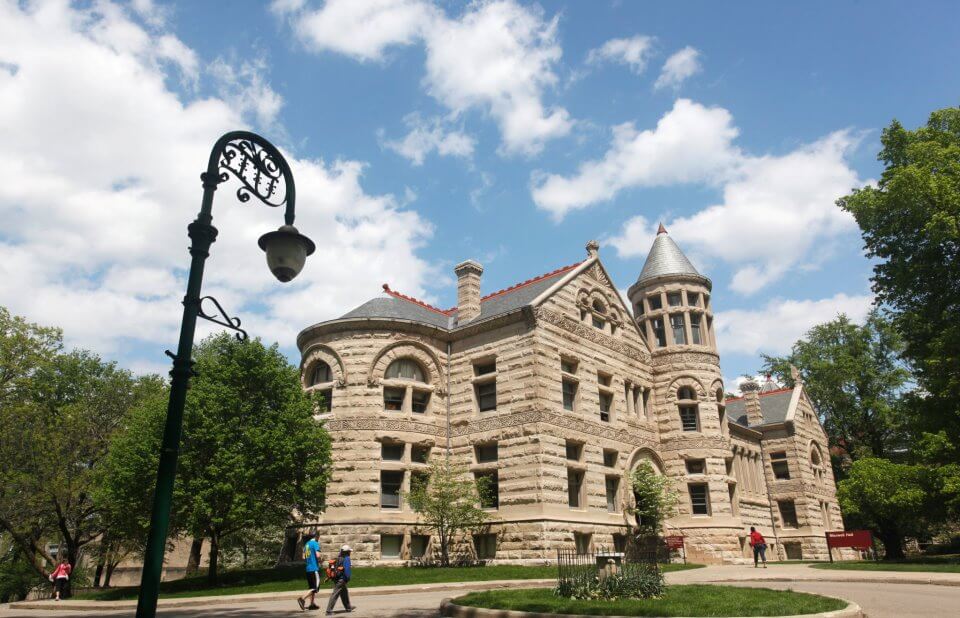
More Information
Tuition: $9,334 / $29,806
Score: 82.8
Unique Features
Indiana University is nestled in the city of Bloomington, a community of about 85,000 people located about an hour's drive southwest of Indianapolis. Indiana has about 34,400 undergraduates enrolled in its semester system. Freshmen must live on campus for at least two semesters. Indiana is tied for No. 38 on U.S News & World Report's list of Top Public Schools. Indiana's Bachelor of Science in Public Health degree in Community Health helps people develop the abilities to assist individuals who face challenges in living healthy lives. It is offered by the university's Richard M. Fairbanks School of Public Health. To apply to the degree program, students must have a cumulative GPA of 2.5, along with a 2.5 GPA in their most recent semester. The degree calls for 35 credit hours in general education, 69 credit hours of courses that focus on the major, and 16 credit hours of electives. Courses in the major include Navigating the Maze to Healthy Living, Policy and Management in Population Health, and Theoretical Foundations of Community Health. The program also calls for a capstone project in which the student applies his or her public health knowledge in a real-world environment.
#20. University of North Carolina at Greensboro – Greensboro, NC
Bachelor of Science in Community Health Education

More Information
Tuition: $7,250 / $22,409
Score: 83.4
Unique Features
The University of North Carolina at Greensboro has an undergraduate population of about 16,400. The campus is located in the heart of Greensboro, NC, a city of about 290,000 residents located about an hour west of the University of North Carolina's Chapel Hill campus. The Greensboro campus offers more than 100 academic programs. Among them is the Bachelor of Science in Public Health degree, which concentrates on community health education. Students in the program learn how to develop and use community-based strategies to maintain residents' health and combat numerous possible health problems. Degree applicants are admitted to the fall semester and must apply by April 1st. Applicants must have a cumulative 2.5 GPA in university coursework and a grade of C or better in prerequisite courses. All students majoring in the Public Health bachelor program must pass the Certified Health Education Specialist exam, which is offered every April and October. The degree program starts in the student's junior year. The program calls for 60 credit hours in the major – 48 credit hours of core courses and 12 in electives. Core courses include Program Planning and Evaluation, Environmental Health, and Public Health Data Analysis. An internship in a public health-related, real-world environment is taken in the spring semester of the student's senior year. A total of 122 credit hours are required for graduation.
#19. California State University, Fullerton – Fullerton, CA
Bachelor of Science in Public Health

More Information
Tuition: $6,850 / $18,730
Score: 83.8
Unique Features
California State University, Fullerton is located in the center of Orange County, in the greater Los Angeles metropolitan area. The campus has an undergraduate enrollment of about 34,900 and offers 50 undergraduate degrees. Cal State Fullerton is only a 20-minute drive from Disneyland, and one of its most famous alumni is Academy Award-winning actor Kevin Costner. The Bachelor of Science in Public Health degree is offered by the university's College of Health and Human Development. The degree requires 48 credit hours, out of the 120 credit hours required for graduation. All classes in the major must be completed with a grade of C- or better. Core classes include Program Design in Kinesiology and Health Promotion, Epidemiology, and Introduction to the U.S. Health Care System. Students can pursue a Public Health degree with a concentration in global health. Classes in the concentration cover areas such as food security, community development, and communicable and non-communicable diseases. Classes in the global health concentration include Chronic Disease Epidemiology, Culture and Nutrition, and Transdisciplinary Perspectives on HIV/AIDS. Seniors in the degree program must complete an internship that involves supervised field experience in a community health setting.
#18. University of North Texas – Denton, TX
Bachelor of Science in Public Health

More Information
Tuition: $10,544 / $20,504
Score: 84.0
Unique Features
The University of North Texas is located in Denton, a city of about 136,000 residents on the northern edge of the Dallas-Fort Worth metro area. About 100 majors are offered at UNT, which has an undergraduate enrollment of about 34,900. Singers Norah Jones and Roy Orbison attended UNT. The university's Bachelor of Science in Public Health degree is offered through the College of Health and Public Service. Beyond the degree's cores, the Public Health curriculum offers five areas of concentration: epidemiology, administration, biological sciences, population studies, and emergency and disaster management. Out of the 120 semester credit hours needed to graduate at UNT, the Public Health degree requires 27 hours in the major, plus 12 hours in the Health track and 27 hours from Health electives. Classes include Family Life and Human Sexuality, Health Promotion in the Corporate Setting, and Consumer Health Advocacy. Eighteen credit hours in the chosen concentration area are required. A student's overall GPA in degree-related coursework must be 2.0 or higher. Students who complete the Public Health bachelor's degree can pursue a Master of Science in Rehabilitation Counseling or a Master in Health Services Administration.
#17. University of Michigan – Ann Arbor, MI
BA in Community and Global Public Health, or BS in Public Health Sciences

More Information
Tuition: $14,826 / $47,476
Score: 84.3
Unique Features
The University of Michigan finds its home in Ann Arbor which is considered one of the nation's best college towns. Ann Arbor, located less than an hour west of Detroit, has a population of about 121,000, compared to the university's undergraduate enrollment of about 29,800. Michigan ranks No. 27 on the U.S. News & World Report's list of best universities, and No. 9 among best universities for veterans. The university offers two distinct undergraduate degrees in Public Health: a BA in Community and Global Public Health or a BS in Public Health Sciences. Both are offered by Michigan's School of Public Health. The BA is aimed at students who are interested in the cultures and socioeconomic forces that shape health on both a local and universal level. The BS is directed at students who are interested in research or a clinical setting for public health, in areas such as epidemiology and environmental health sciences. For both degrees, students must pass 12 trimester credit hours of coursework, which must include at least 60 upper-level credit hours, of which 45 hours must be from School of Public Health classes. The remaining 15 credit hours can be made up of any upper-level courses. Core courses for both degrees include Data-Driven Solutions in Public Health and Public Health in Action: Creating Change.
#16. University of Arizona – Tucson, AZ
BS with Major in Public Health

More Information
Tuition: $11,877 / $35,307
Score: 85.2
Unique Features
The University of Arizona is located in the heart of Tempe, AZ. It offers more than 100 undergraduate majors to an undergrad student body of about 35,000. Arizona has a high acceptance rate – 79 percent of applicants were admitted in 2016. The BS with a Major in Public Health is offered through the Mel and Enid Zuckerman School of Public Health, the only accredited public health school in Arizona. One of the most unique aspects of the degree is that it is available online. The university's Arizona Online bachelor's degree program is ranked No. 29 by U.S. News & World Report. Students can enter the Public Health online degree program with as little as 60 semester credit hours in general studies completed. The degree can be finished in two academic years. As for the on-campus version of the degree, students can be accepted with a cumulative GPA of 2.5, plus a grade of C or higher in Public Health prerequisite courses. The Public Health major calls for 58 credit hours of required and elective courses. The electives can align with five areas of emphasis offered by the School of Public Health: environmental and occupational health, global health, health promotion, health systems theory and practice, and qualitative methods in public health.
#15. University of Iowa – Iowa City, IA
Public Health, Bachelor of Science

More Information
Tuition: $8,965 / $30,609
Score: 85.7
Unique Features
The Iowa River wraps around the campus of the University of Iowa, a public institution with an undergraduate enrollment of about 24,500. Freshmen aren't required to live on the Iowa City, IA, campus, but about 95 percent choose to do so. The Public Health, Bachelor of Science degree is offered by the university's College of Public Health. The Bachelor of Science curriculum builds knowledge of the natural sciences, setting students up for research-based careers or for advanced study in areas such as occupational health, epidemiology, nursing, medicine, pharmacy, or biostatistics. The degree requires 120 credit hours, including 60 credit hours of coursework for the major. Students must maintain a cumulative GPA of 2.0, both inside and outside the major. Full-time students can complete the bachelor's program in eight semesters – four years. Students can sign on to an accelerated program in which they start taking graduate-level Public Health classes in their senior year, with the goal of earning a Master of Public Health one year after getting their bachelor's degree. First-year students can apply for direct admission to the college. Applicants will get strong consideration if they meet the minimums of a 3.6 high school GPA, along with either a 26 on the ACT or a combined score of 1,230 on the reading, writing and math sections of the SAT.
#14. West Virginia University – Morgantown, WV
BS in Public Health

More Information
Tuition: $8,376 / $23,616
Score: 85.8
Unique Features
West Virginia University is located along the banks of the Monongahela River in downtown Morgantown, WV, a city of 31,000 that's about 75 miles south of Pittsburgh, PA. The university has an undergraduate enrollment of about 22,500. WVU offers more than 200 different degree programs through 15 colleges. WVU's BS in Public Health degree is offered through the School of Public Health. Incoming freshmen can apply for direct admission to the School of Public Health if they earned a high school GPA of 3.0 or higher, or combined a 2.75 GPA with an ACT score of 21 and an SAT score of 1,080. Students in the program can tailor their studies to three areas of emphasis: community and population health, patient navigation, and public health sciences. The Public Health degree requires 72 semester credit hours of the 120 credit hours required to graduate. That total includes a capstone project in the student's senior year. Popular courses include Global Perspectives of Public Health, Public Health in the Workplace, and Clinical Research Methods and Practice. Undergraduate Public Health majors also are required to log at least 50 hours of community service that's approved by the university's Office of Service and Learning.
#13. San Diego State University – San Diego, CA
Bachelor of Science in Public Health

More Information
Tuition: $7,460 / $19,340
Score: 86.1
Unique Features
San Diego State University has an undergraduate enrollment of 30,165 and offers bachelor degrees in 91 areas of interest. The campus connects to the greater San Diego community by hosting up to 350 arts events a year. San Diego State's Bachelor of Science in Public Health degree is offered through the School of Public Health. The major gives students the knowledge to create, use and assess programs for diverse populations designed to reduce threats to public health. There are two student organizations dedicated to the discipline – the Public Health Initiative, and the Students 4 Public Health. In preparation for applying for the major, students must complete 31 semester credit hours of courses such as Introductory Psychology and Human Anatomy. Once approved for major coursework, the student must pass 48 credit hours of upper-division Public Health classes such as Public Health Professionalism and Health Data Policy. A unique aspect of San Diego State's program is its required international experience. Students spend two or more weeks in locations such as Costa Rica, Vietnam, Australia, or Italy, to gain awareness of cultural, political and economic forces in another country. The experience can be a study-abroad program or a student exchange.
#12. University of North Carolina at Charlotte – Charlotte, NC
Bachelor of Science in Public Health

More Information
Tuition: $6,832 / $20,266
Score: 86.2
Unique Features
The University of North Carolina at Charlotte is a suburban campus with an undergraduate enrollment of about 23,900. About 6,000 students live on campus. UNC Charlotte offers 78 bachelor's degrees and 63 master's degrees. The Bachelor of Science in Public Health is offered by the Department of Public Health Sciences in the College of Health and Human Services. According to the department, the BS degree is aimed at fulfilling its vision of "healthy people, healthy places, healthy communities." Applicants to the major must complete 60 semester credit hours of lower-division, pre-requisite courses such as College Algebra and Health Communication. Application is competitive; students must have a cumulative GPA of at least 2.5. The degree has 48 required credit hours, including 18 hours of electives. A student must complete 120 total credit hours to graduate. The Public Health program includes an internship or a capstone project. Elective classes include Healthcare Ethics, Health and the Aging Process, and Psychology of the Black Experience. Completion of the BS in Public Health coursework qualifies a student to take the nationally recognized Certified Health Education Specialist exam, which is required for several career paths in the industry.
#11. University of South Florida – Tampa, FL
Bachelor of Science in Public Health
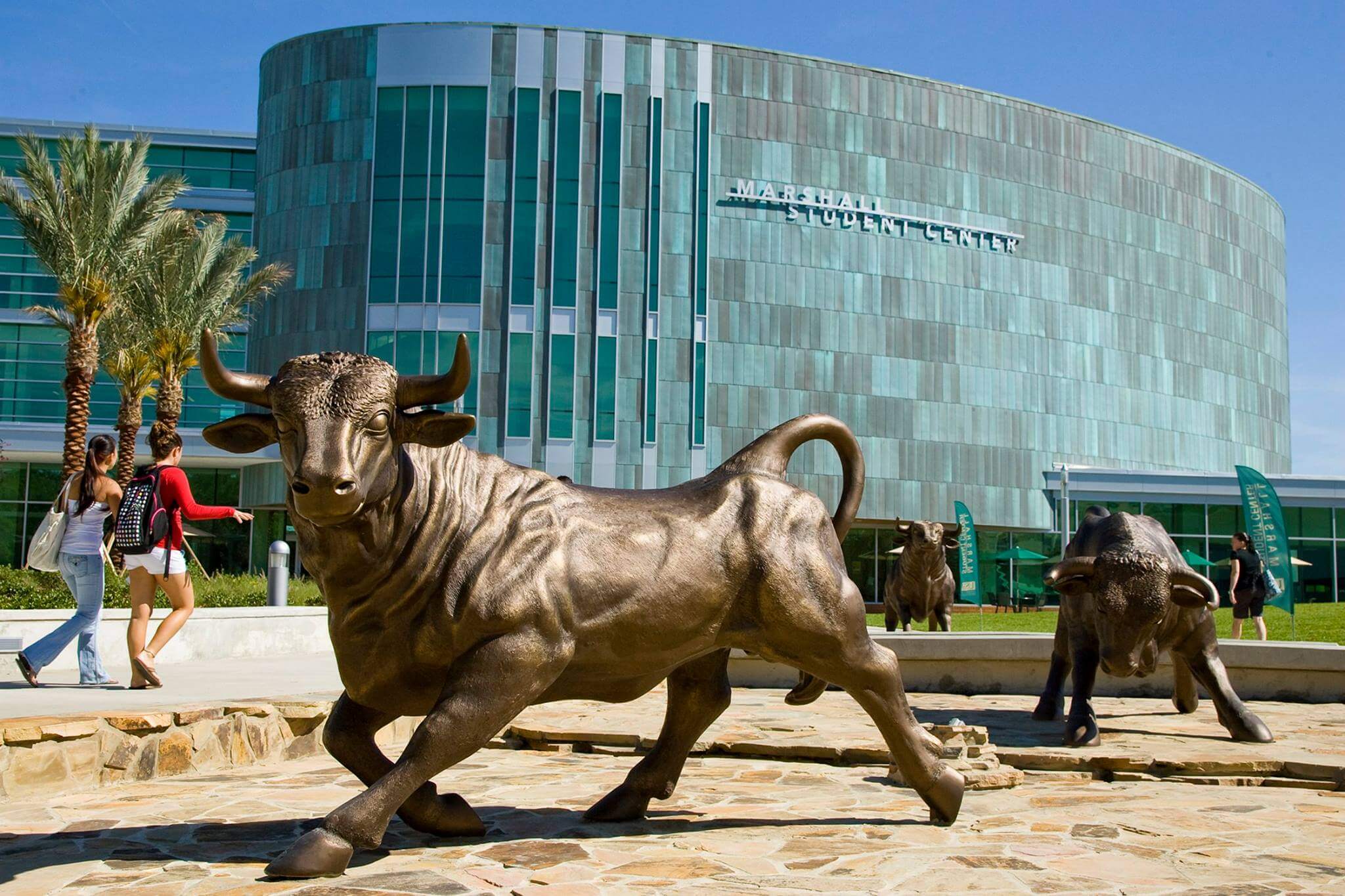
More Information
Tuition: $6,410 / $17,324
Score: 86.4
Unique Features
The University of South Florida is an urban campus in the heart of the Tampa-St. Petersburg's metro area, along Florida's Gulf Coast. USF has more than 31,700 graduate students, and all first-year students are required to live on campus. U.S. News & World Report ranks USF No. 58 on its Top Public Schools list and No. 71 on Best Value Schools. The university's Bachelor of Science in Public Health program is offered by the College of Public Health. The degree program has 30 required semester credit hours of core courses, 12 credit hours of required skills courses, and 12 credit hours of required electives or specializations. Required courses often include opportunities to study abroad in more than 25 countries. Areas of specialization include Infection Control, Environmental and Occupational Health, Global Health, and Nutrition. Electives classes include Women's Health: A Public Health Perspective, Emerging Infectious Diseases, and Community Participation in Homeland Security. The 54 total credit hours of degree coursework must be completed with a grade of C- or better. A student needs 120 total credit hours at USF to graduate. All students must take at least 42 credit hours of courses at the 3000 or 4000 level.
#10. University of California-Berkeley – Berkeley, CA
Bachelor of Arts in Public Health

More Information
Tuition: $14,170 / $42,184
Score: 88.7
Unique Features
The University of California-Berkeley is located in the East Bay of the San Francisco Bay Area. Cal has an undergraduate enrollment of more than 30,500. About 95 percent of incoming freshmen choose to live on campus. U.S. News & World Report ranks Cal in a tie for No. 22 among all universities, No. 2 on its list of Top Public Schools and, notably, No. 112 on its list of Best Value Schools. Memorable alumni range from former Supreme Court Chief Justice Earl Warren to actor John Cho, known for the "Harold and Kumar" films. The Bachelor of Arts in Public Health degree is offered through the university's College of Arts & Letters. The major's goal is to instill knowledge in environmental health, biostatistics, epidemiology, health behavior, and health policy. The college has noted that the degree is impacted, but all undergraduate students who have completed its prerequisite courses are encouraged to apply. Applicants must submit a statement of purpose and a personal essay, along with a resume or curriculum vitae. The degree includes 14 semester credit hours of upper-division classes, which include Introduction to Epidemiology and Human Disease, and Introduction to Health Policy and Management. One capstone course must be taken; options range from Advanced Health Policy to Human Genome, Environment and Public Health. Ten credit hours of electives are required. Those courses include Concepts of Statistics, Human Genetics, and Environmental Microbiology. A minimum GPA of 2.0 must be maintained in all lower- and upper-division coursework.
#9. University of Illinois at Chicago – Chicago, IL
BA in Public Health

More Information
Tuition: $13,704 / $26,560
Score: 88.9
Unique Features
The University of Illinois at Chicago has about 19,400 undergraduate students. Its urban campus offers easy access to commuter students and is an easy two-mile walk to Soldier Field, home of the Chicago Bears. The BA in Public Health degree is offered through UIC's School of Public Health. Students in the major examine environmental, cultural, economic, and political factors that affect health. Graduates of the BA program can work as public health educators, communicable disease investigators, environmental or information specialists, or other similar occupations. College students with 60 hours of lower-division coursework completed with a GPA of 2.75 or higher can apply for the major. The BA in Public Health has 35 core semester credit hours of required classwork. Core classes include Health Literacy, Using the Public Health Toolbox, and Local Citizenship and Community Health Initiatives. The degree also calls for three credit hours of fieldwork, ten credit hours of electives, and 12-15 credit hours of "selectives" – groups of courses that represent an array of disciplines. Examples include anthropology, gender and women's studies, psychology, urban studies, and communication.
#8. Arizona State University – Tempe, AZ
Public Health, BS

More Information
Tuition: $10,792 / $27,372
Score: 90.4
Unique Features
Arizona State University's undergraduate enrollment of more than 42,400 is among the largest in the United State. ASU offers more than 300 undergraduate programs. The urban campus is located just east of Phoenix. Incoming freshmen are required to live on campus. U.S. News & World Report gives ASU the No. 1 ranking on the list of Most Innovative Schools. It also is ranked in a tie for No. 11 in Best Undergraduate Teaching. Well-known ASU attendees include talk show host Jimmy Kimmel and actor David Spade. The Public Health, BS program is offered through ASU's College of Health Solutions, which is located in downtown Phoenix. The degree targets students interested in the study of human populations, as compared to focusing on an individual's health. It prepares students for five areas of public health: behavior science and health education, biostatistics, environmental health, and health services administration. A related degree – Bachelor of International Public Health – is offered online. A student in the BS in Public Health program needs 120 semester credit hours to graduate, including 45 credits hours of upper-division coursework. Classes include Health Disparities and Access to Health, Health Care Systems in the U.S., and Health Care Legislation. A GPA of at least 2.0 must be maintained for all courses.
#7. University of Maryland – Shady Grove, MD
Bachelor of Science, Public Health Science
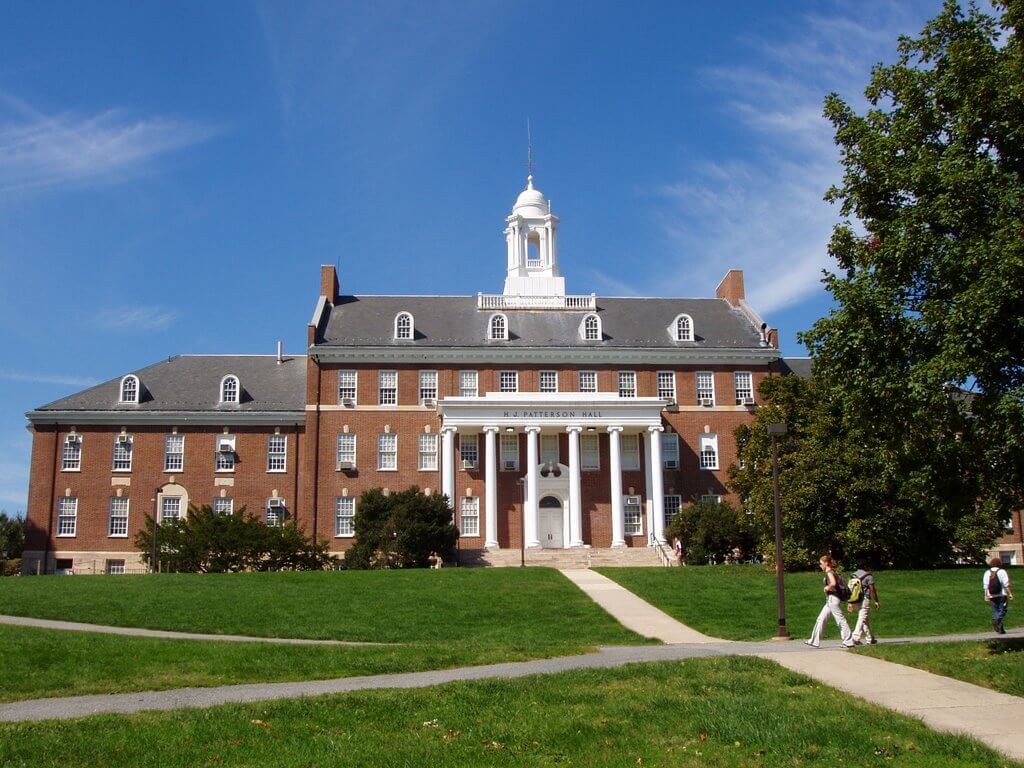
More Information
Tuition: $10,399 / $33,606
Score: 91.3
Unique Features
The Bachelor of Science, Public Health Science degree is offered through the University of Maryland's School of Public Health. The physical location of the degree is unique – the Universities at Shady Grove campus is about 10 miles northwest of Rockville, MD. Established in 2000, the campus reflects a partnership of the nine universities in the University of Maryland System. The campus has an enrollment of only 4,000, with expansion plans expected to raise that number to 7,500. Classes at Shady Grove emphasize convenience for commuter students, with flexible and weekend hours. The BS of Public Health Science degree is a science-based program designed for third- and fourth-year undergraduate students. It emphasizes public health areas such as biostatistics, environmental health, epidemiology, and global health. The BS degree consists of 120 total credit hours, of which 60 are done at Shady Grove and 60 are transferred from a community college or an approved four-year college or university. Students must have a cumulative GPA of 2.5 or better to be admitted to the program. Seniors are required to undertake a capstone project that reflects their public health knowledge. In addition, an internship can be done rather than one senior-year course.
#6. Rutgers State University of New Jersey – New Brunswick, NJ
BS in Public Health

More Information
Tuition: $14,638 / $30,579
Score: 91.8
Unique Features
The New Brunswick, NJ campus is the flagship site of the Rutgers, State University of New Jersey system. The campus, which has an undergraduate enrollment of more than 35,600, is less than an hour's drive to Manhattan in New York City. Freshmen aren't required to live on campus. U.S. News & World Report ranks Rutgers No. 56 among all universities. It also gives Rutgers a tie for No. 17 for its Top Public Schools. Rutgers' BS in Public Health is offered through the Edward J. Bloustein School of Planning and Public Policy. Rutgers students, or students transferring to the Rutgers system, must have 30 credit hours completed with a GPA of 2.5 or better and must have all prerequisite courses completed with a C or better. The degree requires 120 credit hours for graduation. There are 31 hours of core courses in the major, in classes such as Principles of Public Health and Epidemiology. The degree also calls for 15 credit hours of elective courses, of which nine credit hours must be of 300-level classes or higher. Motivated students can pursue an articulated degree of both a BA or BS in Public Health, along with a Master of Public Health. Students can begin taking graduate courses while working toward a bachelor's degree.
#5. Appalachian State University – Boone, NC
Bachelor of Science in Public Health

More Information
Tuition: $7,302 / $22,109
Score: 92.4
Unique Features
Appalachian State University is an excellent choice for students who want to escape the hustle and bustle of urban life, and take advantage of small class sizes and more individualized attention from faculty and staff. App State is located in North Carolina's Blue Ridge Mountains, in the town of Boone, NC, which boasts a population of about 19,200 which is not much larger than App State's undergraduate enrollment (about 17,000). U.S. News & World Report ranks it No. 8 among regional colleges in the South. One of its noted alumni is Stephen Dubner, co-author of Freakonomics. The Bachelor of Science in Public Health degree is one of about 150 undergraduate or graduate majors offered at App State. The Public Health curriculum is designed to help students see human health through a socio-ecological prism, and to help them identify a community's health needs and design interventions. The student-operated Public Health Club offers services to the campus and surrounding community. There are 122 semester credit hours required for graduation. The BS Public Health program includes 40 credit hours of core classes and nine credit hours of applied coursework. The program includes a required internship, which counts for six credit hours. Commonly used sites are public health departments, hospitals, and community health agencies.
#4. Ohio State University – Columbus, OH
BS in Public Health
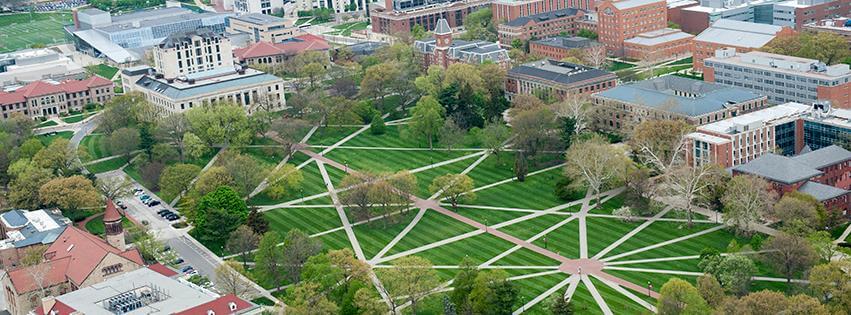
More Information
Tuition: $10,592 / $29,696
Score: 92.4
Unique Features
Ohio State University's undergraduate enrollment of more than 45,900 is among the largest in the nation. Freshmen must live on the Columbus, OH, campus unless they reside in central Ohio and can commute. Ohio State has a 56 percent acceptance rate for applicants. The university is ranked No. 56 overall by U.S. News & World Report. The publication also ranked Ohio State in a tie for No. 17 on the list of Top Public Schools and a tie for No. 28 among best schools for veterans. The BS in Public Health degree is offered through the university's College of Public Health. The curriculum prepares students to take on numerous real-life issues, such as pollution, bioterrorism, healthcare access, obesity, and infectious diseases. It is a four-year program that offers two specializations: public health sociology and environmental public health. Both specializations have capstone coursework that can be an internship, a research project, or an honors thesis. A total of 121 semester credit hours are required for graduation. Coursework within the major includes 18 credit hours of core courses, 27 hours of interdisciplinary specialization courses, nine hours from an interdisciplinary focus area, five hours of electives, and four hours for the capstone. Classes in the public health sociology specialization include Neighborhoods and Crime, as well as Global Criminology. Classes in the environmental public health specialization include Principles of Toxicology, as well as Food Safety and Public Health. The College of Public Health has organizations that students in the major can join. They include Buckeyes for Public Health, the Multicultural Public Health Student Association, and the Student Ambassadors for Public Health.
#3. University of California-Irvine – Irvine, CA
BS in Public Health Sciences or BS in Public Health Policy

More Information
Tuition: $13,738 / $41,752
Score: 95.0
Unique Features
The University of California-Irvine is a research-intensive institution located in suburban Orange County. The campus is about five miles from the Pacific Ocean. Its students are largely commuters; there are more than 29,000 undergraduates enrolled. UC Irvine is relatively inexpensive for California residents but costly for out-of-state students. The university's admission policies also give preference to California residents, especially to in-state community college transfers. UC Irvine offers two Public Health bachelor's degrees – a BS in Public Health Sciences and a BS in Public Health Policy. The program requires 180 quarter credit hours for graduation. Students must maintain a 2.0 GPA for all coursework in the major and for all upper-division coursework. A maximum of 105 quarter-equivalent, lower-division credit hours can be transferred from another institution. Upper-division classes for the BS program include Earth System Science, Chicano/Latino Studies, and Social Ecology. Upper-division classes for the BA program include Criminology, Law and Society, Urban Planning and Public Policy, and Anthropology. A practicum, which earned eight credit hours, is required for both bachelor's programs. There also are several classes that Public Health undergraduate can use to tap into UC Irvine's rich research environment.
#2. Texas A&M University – College Station, TX
Bachelor of Science in Public Health

More Information
Tuition: $11,234 / $36,606
Score: 96.7
Unique Features
"Big" is the byword at Texas A&M University. The undergraduate enrollment of more than 53,000 is one of the largest in the United States. About a quarter of Texas A&M's students take part in intramural sports, making it one of nation's biggest. Also, the Aggies have the largest campus ROTC program in the U.S. Texas A&M is tied for No. 24 in U.S. News & World Report's list of Top Public Schools and ranks No. 44 on the publication's ranking of Best Value Schools. The Bachelor of Science in Public Health degree is offered through Texas A&M's School of Public Health. Texas A&M requires 120 credit hours for graduation. The BS in Public Health calls for 63 credit hours in the major, including 15 credit hours of elective coursework. Elective classes include Pathogens, the Environment and Society, Border Health, Biomedical Genetics, and Industrial Inspections and Audit Techniques. A unique offering of the university's School of Public Health is the Broad Street Society, which offers exceptional undergraduates an opportunity to study in an intensive, residential setting. Components include a series of "greatest hits" lectures from voices around the school, plus a week-long study abroad program that takes students to destinations such as Paris, Budapest, and Vienna.
#1. University of North Carolina – Chapel Hill, NC
Bachelor of Science in Public Health
More Information

Tuition: $9,005 / $34,588
Score: 100
Unique Features
The University of North Carolina forms one anchor point of the state's lauded Research Triangle while Duke University and North Carolina State University comprise the other two. UNC has about 18,800 undergraduate students enrolled at its suburban campus. By state law, 82 percent of any freshman class must hail from North Carolina. U.S. News & World Report puts UNC in a tie for No. 5 on its list of Top Public School and No. 8 among its Best Value Schools. The publication also says UNC ties for No. 30 among all universities. UNC's Bachelor of Science in Public Health degree is offered through the Department of Health Policy and Management in the Gillings School of Global Public Health, which invests millions of dollars into innovation and research. The BS in Public Health program requires 120 semester credit hours and about four years for graduation. About 60 credit hours are devoted to upper-class coursework in the major. A 10-week, full-time internship in the summer between a student's junior and senior years is required. Another requirement is a capstone project during the student's senior year. The BS in Public Health isn't available online. Graduates, however, can pursue a Master of Public Health online from UNC.

